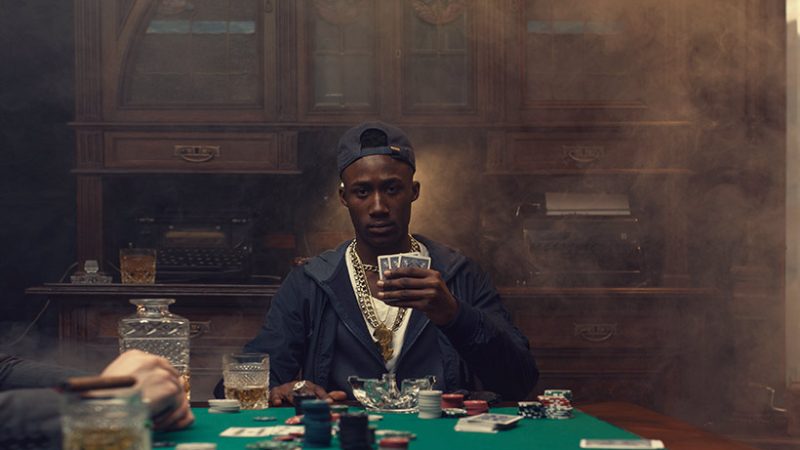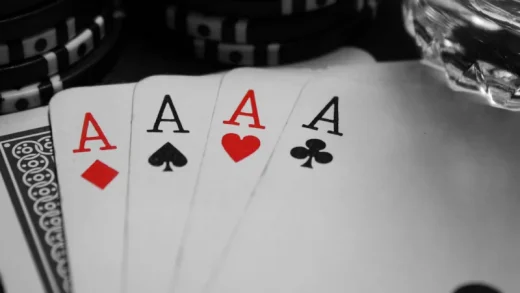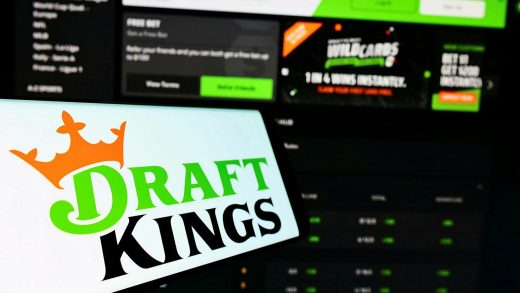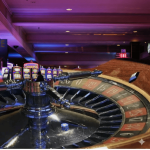Casinos in Pop Culture: From the 90s to TikTok – How the Image of Gambling Has Changed

Casinos have long captivated our collective imagination. In the flashy neon-lit world of the 90s, casinos were places of mystery, glamour, high stakes, and luxurious excess. Today, the cultural narrative has shifted drastically: gambling’s image is reshaped by influencers, online platforms such as Nomini, and even viral TikTok trends. But how exactly has gambling’s portrayal evolved through decades of pop culture, from cinematic classics and TV series to the rise of social media? This article explores the fascinating journey of casinos in popular culture, unpacking the transition from the 90s glam to the modern-day TikTok phenomenon.
The Golden Era of the 90s: Casinos as Symbols of Glamour
Casinos on the Silver Screen
In the 1990s, Hollywood frequently depicted casinos as centers of luxury, intrigue, and power. Movies such as Casino (1995) and Rounders (1998) showcased gambling as a lifestyle marked by wealth, status, and high-risk drama. Martin Scorsese’s Casino, for instance, depicted Las Vegas as a city ruled by money, mafia bosses, and extravagant lifestyles, creating an enduring image of casinos as thrilling yet dangerous.
- Key Films:
- Casino (1995)
- Rounders (1998)
- Leaving Las Vegas (1995)
Casinos were portrayed as mysterious places, exclusive and sometimes sinister, amplifying their allure for mainstream audiences.
Gambling in Music Videos and Fashion
The influence of casinos wasn’t limited to film. Iconic musicians like Madonna, Prince, and even Tupac featured casino imagery in their music videos, performances, and album covers. Casino-themed fashion—sequins, velvet suits, cocktail dresses—became synonymous with sophistication and excess.
- Notable Examples:
- Madonna’s glamorous casino-themed photo shoots.
- Tupac’s “All Eyez on Me” album artwork featuring Las Vegas imagery.
Thus, casinos in the 90s became deeply embedded in the era’s visual language, associated with luxury and prestige.
Early 2000s: Casino Culture Goes Mainstream
The Poker Boom and TV Influence
The early 2000s marked a significant shift when poker became a massive phenomenon, largely due to televised events like the World Series of Poker (WSOP). Poker was no longer a hidden or elite pastime—it became a global spectacle.
Shows like ESPN’s coverage of WSOP transformed poker from a niche game into mainstream entertainment. Players like Chris Moneymaker, who famously turned a small online tournament into a multimillion-dollar win, embodied the era’s promise: anyone could become rich through gambling, fueling the dream of quick success.
- Impactful Events:
- Chris Moneymaker’s WSOP victory (2003)
- Television broadcasts of poker tournaments
Celebrity Influence and Reality Shows
Reality TV and celebrity endorsements further embedded gambling into popular culture. Celebrities openly discussed their casino visits, losses, and wins, bringing gambling conversations into everyday life. Shows like “Celebrity Poker Showdown” (2003–2006) made casino games accessible to broader audiences.
The Rise of Online Casinos: The Digital Revolution
New Casino Experience
The advent of the internet dramatically reshaped gambling’s image. Casinos were no longer exclusively tied to physical locations like Las Vegas or Monaco. Online casinos made gambling more accessible, personalized, and appealing to a digital generation.
Platforms offered a diverse range of games, user-friendly interfaces, and unique themes, attracting players who might never visit a traditional casino. Online casinos began to feature prominently in pop culture references, social media mentions, and digital marketing campaigns.
The Shift in Gambling’s Public Perception
As gambling moved online, its portrayal shifted from elite glamour to everyday entertainment. Gambling became less about exclusivity and more about accessibility and fun.
Players could casually enjoy casino experiences without expensive dress codes or travel. This normalization changed gambling’s image significantly, transforming it from a luxurious, elite activity into casual entertainment accessible from home.
Modern-Day: TikTok, Influencers, and Gambling Virality
TikTok’s Role in Shaping Gambling Trends
TikTok, the wildly popular video-sharing app, has drastically altered how younger audiences perceive gambling. Short-form videos featuring gambling wins, tutorials, slot machine highlights, and “life hacks” about casino strategies regularly go viral. TikTok creators showcase casino games in casual, entertaining ways, often focusing on luck-based wins or dramatic jackpot moments.
Casino-related hashtags, slot spins, and reaction videos on TikTok attract millions of views, reshaping the traditional casino narrative into something more spontaneous and accessible.
- Popular TikTok Gambling Trends:
- Slot machine win compilations
- Gambling “life hacks”
- Casino-themed challenges and viral content
The Power of Influencers
Social media influencers now significantly shape gambling perceptions. Influencers regularly promote casino platforms, bringing online casinos directly into mainstream pop culture.
Platforms like Twitch and YouTube further enhance this trend, with influencers live-streaming gameplay, betting strategies, and jackpot reactions. Influencers have effectively transformed gambling into interactive entertainment, far removed from traditional casino culture.
Gambling’s Changing Image: From Glamour to Casual Entertainment
From Mystery and Glamour to Accessibility
Casinos were once mysterious, glamorous, and intimidating places portrayed vividly in films like Casino Royale and Ocean’s Eleven. Today, gambling is more relaxed, playful, and user-centric. The cultural shift reflects broader changes in society’s values, emphasizing accessibility, inclusivity, and digital connectivity.
Online platforms capitalize on these new values, presenting gambling as a fun, social, and low-pressure experience.
The Democratization of Casino Culture
Previously, casinos were exclusive—only accessible to those with money or prestige. Online casinos and social media have democratized this, opening the casino experience to everyone with internet access.
Now, a casual user can effortlessly try a slot game or share a jackpot moment on TikTok. This democratization has positively influenced the public perception of gambling, making it seem less risky and more entertaining.
Ethical Debates and Responsible Gambling in Pop Culture
Awareness and Responsibility
Pop culture’s increased gambling exposure has sparked debates about responsible gambling. Movies like Uncut Gems (2019) showcased the darker, addictive aspects of gambling, raising awareness of gambling addiction’s potential harm.
Platforms have responded proactively, embedding responsible gambling tools within their systems. Pop culture increasingly reflects the need for responsible gaming, balancing excitement with safety.
Regulatory Influence
As gambling becomes mainstream entertainment, regulation increasingly shapes its portrayal. Social media platforms and online casinos now adhere to stringent guidelines regarding responsible gambling promotions, ensuring their messaging doesn’t encourage compulsive or harmful behavior.
The Future: Casinos, Tech, and Cultural Shifts
Metaverse Casinos and Virtual Reality
The next evolution of casinos in pop culture will likely involve virtual and augmented reality technologies. The Metaverse promises immersive casino experiences, where players interact in realistic virtual environments. Platforms may soon offer virtual reality casinos, further changing gambling’s cultural portrayal.
AI and Personalized Gambling
Artificial intelligence will increasingly influence online gambling experiences, creating highly personalized games and promotions. This tech-driven future will further shift gambling’s image from general entertainment to individually tailored experiences, reflected widely in pop culture.







